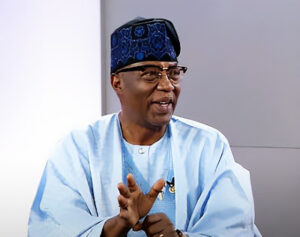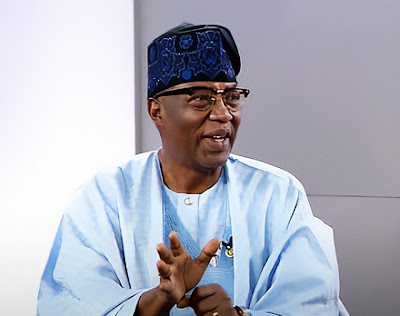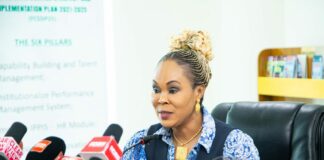“… when the privatisation was going on and the DisCos were being privatized I’m not so sure that people with capacity won the bids. There is financial capacity and there is also technical ability.”

Otunba Engr. Olugbenga Daniel, former Governor of Ogun State and a current Senator of the Federal Republic, in a recent interview with a national newspaper, provided an in-depth analysis of Nigeria’s enduring power problems and offered solutions to enhance the sector.
Highlighting mismanagement and lack of patriotism as key issues, he drew on his experience to suggest a decentralised approach to electricity generation and distribution.
Reflecting on historical attempts to tackle the power issue, Daniel pointed out that initiatives such as the ENRON power project by the Bola Tinubu administration in Lagos failed to receive adequate support.
Recall that Tinubu-led Lagos State Government initiated a partnership with Enron Nigeria Power Holdings Ltd in 1999 to build an Independent Power Plant to initially generate 90MW of electricity for Lagos state.
“For instance, at the beginning of this civil administration, electricity generation was removed from the exclusive preserve of government and I remember that one of the administrations that made the first attempt was this same Bola Tinubu’s administration in Lagos with the ENRON power project. We did not get the support we should get at that time. I’m just being mild in the way I am describing what happened. So it is management. It is lack of patriotism. All over the world, nobody centralizes electricity generation and distribution because it doesn’t work,” he stated.
He lamented the inconsistency in policy and poor management that have plagued the sector, citing the example of the Olorunsogo and Omotosho power stations, where local communities benefited directly from power generation—a model that was not sustained.
“When we were building the Olorunsogo and Omotosho power stations, part of what we insisted on was that 10% of the power that is generated, both from Olorunsogo and Omotoso, must be given to the local environment within 20 kilometers radius of that plant. By the time we commissioned the Olorunsogo power plant, a large number of estates, both residential and commercial, started developing around that power station. Because they were sure that they were going to get power. But again, that was not sustained. So it is this inconsistency in policy and poor management and the opaque way of doing things without transparency.”
Daniel criticised the privatisation process of the DisCos (Distribution Companies), noting that financial capacity was often prioritised over technical ability. This oversight led to inadequate investments and reliance on high-interest bank loans, unsuitable for the long-term nature of power infrastructure development.
“Now, when the privatisation was going on and the DisCos were being privatized I’m not so sure that people with capacity won the bids. There is financial capacity and there is also technical ability. In some instances, it does appear that the only thing they were looking at was the financial capability but then the shock that has enveloped the country is that many of those people did not invest as expected and the ones who invested more or less took money from banks with the cut throat interest rates. The business of power is not a business that is like direct importation where you get immediate returns. It is a long-term investment.
“To build an average generating plant can be anything between a minimum of five years. After you have all your money to put all the equipment in place, it’s minimum five years. So if you want to take some cut throat interest rates by way of a loan to do a business like that, within five years you’re already bankrupt. So those are the challenges. So most of them therefore did not do what was expected of them. They were waiting that government would still support them. So that was a misstep.”
Addressing the broader economic framework, Daniel argued that while the government should not run businesses, it has a responsibility to support and facilitate them.
He commended the current administration’s efforts to harmonise the tax regime, which he identified as a significant burden on the private sector, while emphasising the need for tax relief and a more organised taxation system to create a conducive environment for businesses.
Engr. Daniel also expressed confidence in President Bola Tinubu’s leadership, citing his extensive experience in both the private and public sectors. He believes that Tinubu’s understanding of the challenges facing Nigeria’s economy will drive effective reforms and improvements.















